Civil society calls for wartime sexual violence survivors' participation in reparations and justice
South East European launch of Secretary General's Guidance Note on reparations for conflict-related sexual violence in Sarajevo sees Balkan women’s groups echo calls for comprehensive reparations programmes.Date:
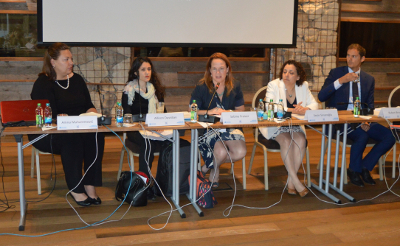
On 9-10 June 2016, Bosnia and Herzegovina hosted the regional launch of UN Secretary General’s Guidance Note on Reparations for Conflict-Related Sexual Violence, which calls for comprehensive reparations programmes that promote the effective participation of survivors to secure justice for survivors of conflict-related sexual violence.
Over 60 participants from Croatia, Kosovo[1], Serbia, Bosnia and Herzegovina, Turkey, Cyprus and Ukraine attended the launch in Jahorina. They discussed best practices on reparations for sexual violence in war, ways to implement the Guidance Note and enact domestic laws and policies in South East Europe.
“The SG’s Guidance Note offers key principles to secure effective redress for survivors of conflict related sexual violence. It recommends transformative reparations programmes that promote the effective participation of survivors, and that seek to subvert existing gender hierarchies and inequality,” said Dr. Sabine Freizer, Adviser for Peace and Security, UN Women Europe and Central Asia Regional Office.
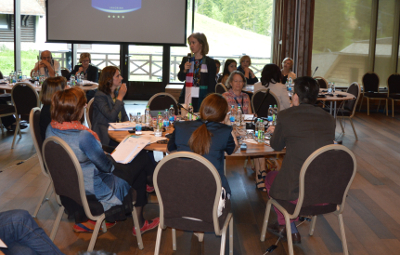
The SG’s Note was prepared by The Office of the United Nations High Commissioner for Human Rights (OHCHR) and UN Women following a joint study that included all previous UN-lead reparations work.
The meeting was particularly relevant given the region’s current progress in carrying out reparations. Previously, sexual violence in conflict was largely ignored due to social taboos and stigmatization.
“Conflict related sexual violence is one of history's greatest silences. Undocumented crimes go unheard. Thanks to individuals who listened to survivors’ stories and ensured they were not forgotten, the Balkan region is at the forefront of global efforts to secure justice and accountability for these crimes,” said Ms. Allison Davidian, Policy Specialist for Transitional Justice at UN Women in New York.
UN Women asked meeting participants to describe their efforts to combat conflict-related sexual violence and address its legacies.
Here’s what they had to say*:
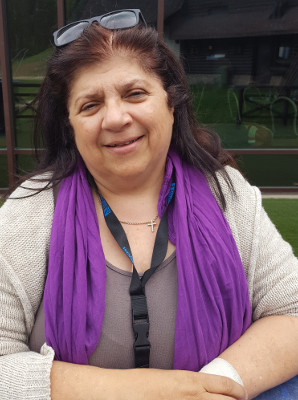
“Cyprus has been in a 42-year conflict. We’ve never publicly discussed sexual violence from that conflict and are only now discussing reparations for lost property. Cyprus is just beginning to offer sexual violence survivors safe spaces and support that will let them disconnect from what happened and join the process.”
- Magda Zenon, Cyprus Women's Lobby
A founder in 2001 of Hands Across the Divide, a ground-breaking Cyprus-wide women’s NGO set up to integrate gender equality in the Cypriot peace process, Magda believes that integrating survivors into society is essential for sustainable peace: “Survivors don’t need pity or charity. They need acceptance and to be integrated into the system, so they can live life to its fullest. They need something concrete to ensure that their families and children are safe and protected. If survivors’ children are protected, conflict won’t be repeated.” At the meeting, Magda represented the Cyprus Women’s Lobby, which is an umbrella network of 16 women’s organizations.
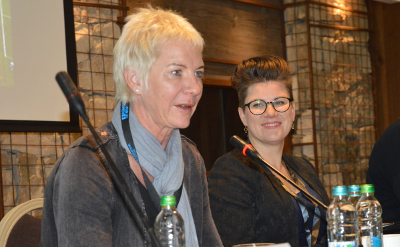
“The courage of Bosnian women who testified at The Hague helped establish sexual violence as a war crime. Unfortunately, the stigma attached to sexual violence during war prevents women coming forward, even now. That won’t change until an effective reparation programme treats all civilian victims equally.”
- Madeleine Rees, Secretary General of the Women’s International League for Peace and Freedom (WILPF).
Madeleine came to Bosnia and Herzegovina in 1996 to work with NGO Medica: “In 1996, after the war, women would not testify. They put their trauma aside and took care of things, like finding missing family members, a place to live and schools for their kids. We set up a legal aid centre and helped thousands get treatment, register missing persons and file return of property claims,” says Madeleine. “I keep working on this because I’m angry with the men who hurt these women and with the system which continues to discriminate against them. We fight for social justice, to change gender stereotypes and engage with men so they’re part of the solution.”
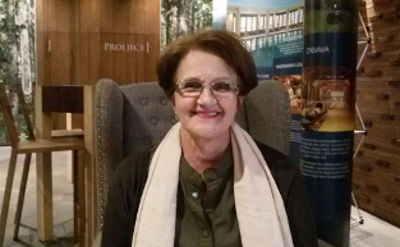
“As the Bosnian war went on there were fewer and fewer public stories of rape. The war crimes investigation tribunal at the Hague was very important in publicising the horrors of war rape. Reparations should be available to all victims. These are not social benefits. We must educate survivors to understand that their rights were violated, and that the state is obliged to provide reparations.”
– Teufika Ibrahimefendić, psychologist and psychotherapist at the Bosnian NGO Vive žene Tuzla.
In 1992 when war broke out in Bosnia and Herzegovina, Teufika began working with survivors of conflict related sexual violence, often from the most affected areas in the country. She continues 24 years later to support and empower survivors: "Rape is not a sexual act. It is a war crime that includes physical and psychological harassment. We support survivors so they exit this trauma as healthy persons. To do this, we fight against stigma throughout society."
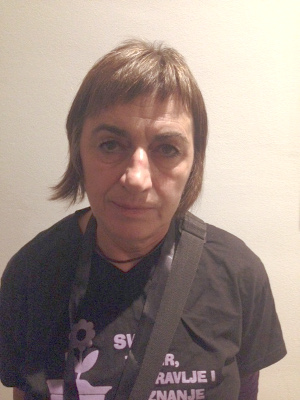
“Since 1991, Women in Black has taken a feminist approach to justice. We visit the victims of crimes done in our name to initiate peacebuilding. We set up a Women’s Court (May 2015) for the former Yugoslavia. This is morally and politically important as it puts us in contact with victims’ relatives and Bosnia and Herzegovina and Kosovo organizations. Our very serious problem is that donors are not interested anymore.”
- Stanislava Staša Zajović, co-founder and coordinator of the NGO Women in Black, Belgrade, Serbia.
An organizer and active participant in anti-war actions and marches since 1991, Staša believes much remains to be done. Her group, Women in Black, strives to establish a sustainable, local reparations model: “We don’t want to copy this from other countries. We want to create a local reparation model with survivors, activists, academics and artists. The process is very exciting.”
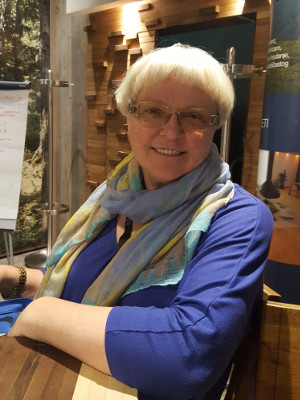
“When the conflict began in 2014 in Ukraine, Ukrainian women organizations started working on conflict related sexual violence. This meeting made me realize that it is very important to involve all actors.”
– Olena Suslova, a founder of the Ukrainian Women’s Fund, now a board chair of the Women’s Information Consultative Center (WICC)
A women’s rights and peace activist and educator for more than two decades, Olena is at the forefront of the movement that is working to ensure that women’s roles in post-Maidan Ukraine - in volunteer groups, in the armed forces and in peace initiatives – are recognized and further developed. Like in other conflicts, sexual violence has been reported in Ukraine’s conflict zone. The lessons learned from the former Yugoslavia prove that the quicker survivors are identified and assisted, the sooner society can embrace sustainable peace.
You can read the UN Women Statement for the International Day for elimination of Sexual Violence in Conflict here.
*Disclaimer: The views expressed here are of these participants and may not necessarily reflect those of UN Women.
[1] All references to Kosovo shall be understood in full compliance with UN Security Council Resolution 1244 (1999)